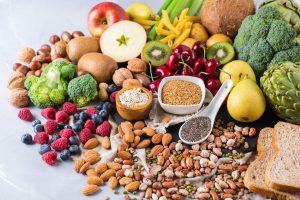Dealing with hair problem during monsoon

The hot and humid season undermines the beauty of the hair. The look of the hair really suffers. This is more so with oily hair. Sweat and oil secretions attract dirt and pollutants, making the hair dull and matted. The salt in our sweat also makes the hair rough and robs it of body and shine. Hair loss is also common during the Monsoons, due to oiliness and sweat deposits.
Sticky dandruff is another problem to contend with. The scales, along with oil and sweat secretions, tend to stick to the scalp. Rich conditioners and hair styling products can also lead to a build-up on the scalp. For sticky dandruff, hot oil therapy is useful. Heat sesame seed oil or olive oil and apply it on the scalp with cotton wool, rubbing gently to dislodge the flakes. Then dip a towel in hot water, squeeze out the water and wrap the hot towel around the head, like a turban. Keep it on for 5 minutes. Repeat the hot towel wrap 3 or 4 times. This helps the hair and scalp absorb the oil better. Leave the oil on overnight. Next morning, apply the juice of a lemon on the scalp and wash your hair after 20 minutes. You can also add 5 drops of Tea Tree Oil to a mug of water and use it as a last rinse.
Shampoo the hair more frequently during monsoon. Use less shampoo and rinse well with water. Then, have a tea-water and lemon rinse for silky and shiny hair. Take used tea leaves and boil them again in 4 to 5 cups of water. The amount of water depends on the length of the hair. Strain and cool the water. Add the juice of a lemon and use as a final rinse after shampoo. To add shine, you can also whisk egg white with the juice of a lemon and apply on the hair half an hour before your shampoo.
Another problem is that of bad odour from the scalp during the humid season. Wash your hair at least four times a week. Rinse thoroughly with water. For a fragrant hair rinse, add the juice of a lemon and half a cup of rose water to a mug of water and use as a last rinse after washing the hair.
As nutritional deficiency is one of the most common causes of hair loss, the diet is very important. Hair is made up of a protein matter called keratin. So, ensure adequate protein in the diet. A balanced, nutritious diet helps healthy hair growth, since the hair is actually fed by the nutrients in the blood stream. Include lean meats, fish, egg, dal, beans, fruits, sprouts, vegetables and whole grains. Consult your doctor before making changes in the diet. Vitamin C, Zinc, Omega 3 fatty acids are all necessary for healthy hair growth. Vitamin C is available in oranges, lemons, tomato, papaya, grapefruit, cabbage and cauliflower. Zinc is plentiful in seafish, mushrooms, green leafy vegetables and wholegrain cereals. Omega 3 fatty acids are essential fatty acids, available in fish, plant and nut oils, seaweeds. Cut down on aerated drinks, fried foods, too much salt and sugar. Dull, lifeless hair can be a sign of a poor diet.
Take a small bowl of sprouts daily. Sprouts contain amino acids, which are very beneficial to the hair. Include fresh fruits, raw salads, leafy green vegetables, whole grains and curd in the daily diet. Drink 6 to 8 glasses of water daily. Drink freshly extracted juices of fruits and vegetables, adding enough water to them. Add the juice of a lemon to a glass of water and have it first thing in the morning. Ask your doctor to prescribe vitamin and mineral supplements.



